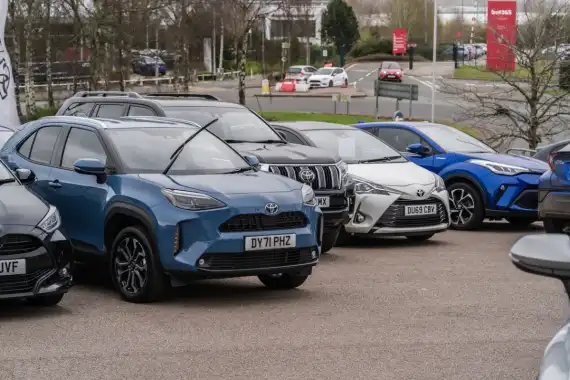
SUV owners should pay taxes that reflect the true impact of their vehicles on roads and the environment, according to calls for the Chancellor to target heavier cars in the upcoming Autumn Budget.
The current Vehicle Excise Duty (VED), commonly known as road tax, is “providing a haven” for SUVs, costing the Treasury almost £2 billion a year in lost revenue, according to green thinktank Transport & Environment (T&E).
VED is calculated solely on a vehicle’s official CO2 emissions, which T&E says fails to account for the surge in SUV popularity, leaving the largest, most polluting vehicles significantly undertaxed.
By contrast, countries such as France tax cars based on both emissions and weight. In these nations, buyers of large SUVs can face tax bills of tens of thousands of euros.
T&E argues that the UK government’s refusal to include weight-based surcharges undermines public finances, road safety, and climate goals. The group says ministers are ignoring the broader societal costs of oversized vehicles, whose real-world emissions and road impact are undervalued.
It is urging the introduction of a “Large Vehicle Levy” in the November Budget.
SUVs are now the UK’s most popular car type, surpassing superminis for the first time on record. T&E claims the “SUV tax loophole” allows buyers of large vehicles to pay up to 20 times less tax than in other European countries.

For example, a buyer of an £85,000 BMW X5 pays £3,200 in the first year in the UK, while in France the same car attracts a €66,600 tax under the weight-based Malus system. Across 13 European countries, taxes on large SUVs at the point of sale are often more than three times higher than the UK’s, though seven EU nations impose no tax at all.
How a Large Vehicle Levy would work
T&E proposes a levy of £10 per kilogram for vehicles over 1,600kg, which could add more than £10,000 to the cost of heavier models, such as the Land Rover Defender. Fully electric vehicles, which are heavier due to their batteries, would receive a higher threshold of 2,000kg.
With SUVs making up nearly 60% of new car registrations in the UK, T&E calculates that a large vehicle levy could generate £1.72 billion a year for the Treasury.
Tim Dexter, T&E UK’s vehicles policy manager, said:
"The Government has a clear opportunity to act in the Autumn Budget. A straightforward weight-based levy would make larger vehicles contribute fairly to road damage, public safety, and environmental costs, while leaving most family cars unaffected. This measure alone could raise nearly £2 billion and help reduce the £50 billion fiscal deficit."
The levy could also curb manufacturers’ focus on large SUVs, which offer higher profit margins. CarGurus found that half of mainstream showroom models are now SUVs.
SUVs also carry societal costs. Their higher bonnets increase pedestrian and cyclist fatalities by 30% in collisions. T&E estimates that 1.2 million new cars sold each year are larger than typical UK parking spaces, adding to congestion.
Two-tonne SUVs cause 16 times more road damage than one-tonne cars, increasing repair costs for everyone.

Most new SUVs (77%) are petrol, diesel, hybrid, or plug-in hybrid, locking in high CO2 emissions for the next decade.
Dexter said drivers support using additional SUV revenue to repair roads, improve safety, and enhance public transport.
"A fair Large Vehicle Levy on oversized SUVs is a vital step to strengthen public finances and create safer, more liveable cities," he added.
Mike Hawes, chief executive of the Society of Motor Manufacturers and Traders, disagreed, warning the levy would unfairly penalise families.
He argued that vehicle design reflects consumer demand and safety requirements, and that additional charges on heavier vehicles could hinder EV adoption while limiting mobility options for families.




